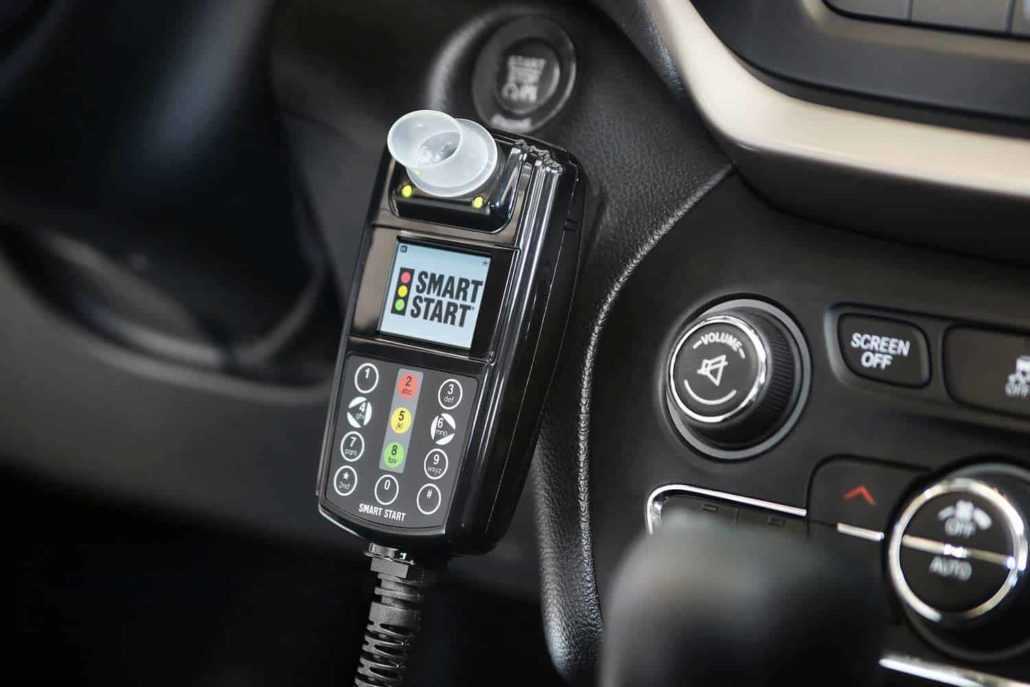If authorities arrested or charged you under ARS 28 1381, you’re probably wondering what it actually means and how serious the consequences might be. Let’s cut through the legal noise and break it down together. ARS 28-1381 outlines Arizona’s DUI laws—specifically, offenses involving driving or being in actual physical control of a vehicle while impaired.
However, here’s the kicker: this law doesn’t just apply to drunk driving. It also includes driving under the influence of drugs—yes, even legally prescribed ones and other controlled substances, in addition to alcohol. In Arizona, a conviction under ARS 28 1381 can affect your license, your bank account, your job, and possibly your freedom.
That’s why this guide matters. We’ll explain the legal structure of the statute, show how people get caught, detail what you should expect in court, and explain how you can protect yourself. Whether you’re the one facing charges or helping a friend or family member, this article offers a clear roadmap through a complicated legal process.

What Is ARS 28 1381?
ARS 28 1381 belongs to the Arizona Revised Statutes and serves as the backbone of Arizona’s DUI laws. It defines how prosecutors handle DUI charges and gives officers legal authority to make arrests for impaired driving. Without exaggeration, this is one of the most heavily enforced traffic laws in the state.
Under ARS 28-1381(A), law enforcement can charge you with DUI if:
- You’re under the influence of alcohol, drugs, or any combination of substances, and
- Your ability to drive is impaired to the slightest degree, or
- Your blood alcohol concentration (BAC) measures 0.08% or higher within two hours of driving or being in control of a vehicle.
In Arizona, impairment—even to the slightest degree—is enough to get you convicted. Unlike many other states, Arizona doesn’t require a specific BAC threshold for a DUI charge. This gives police a lot of discretion during stops.
Subsections Matter
You should also know that ARS 28 1381 includes two main subsections:
- 28-1381(A)(1): Driving while impaired to the slightest degree due to alcohol, drugs, vapor, or any combination.
- 28-1381(A)(2): Driving with a BAC of 0.08% or higher within two hours of being in control of the vehicle.
Law enforcement often uses both subsections in one case. Prosecutors like to stack charges to increase pressure on defendants and improve their chances in court.
Real-Life Scenario: When a Prescription Leads to a DUI
Consider Ben’s situation.
Ben drove home from the dentist after receiving a prescription painkiller. He hadn’t consumed any alcohol, but a broken taillight caught an officer’s attention. During the stop, Ben appeared disoriented. As a result, a drug recognition expert arrived on the scene, conducted a field evaluation, and eventually arrested Ben under ARS 28 1381(A)(1).
Later, Ben’s blood test revealed traces of the prescribed medication. Despite taking the drug legally, the police determined that it impaired his ability to drive. Like many others, Ben had no idea someone could receive a DUI without touching a drop of alcohol.
Cases like Ben’s occur more often than people think, highlighting how broadly ARS 28 1381 can be applied. Knowing the scope of this law could help you avoid an unexpected legal nightmare.
What Are the Penalties for ARS 28 1381 in Arizona?
Arizona enforces some of the toughest DUI penalties in the U.S. Even a first-time offense can carry severe consequences. Not only does the court impose fines and jail time, but the impact on your day-to-day life can be overwhelming.
First Offense (Misdemeanor DUI)
- Jail time: A minimum of 10 consecutive days (though courts may suspend 9 with alcohol screening and treatment).
- Fines and fees: Expect to pay over $1,250, excluding additional court costs.
- License suspension: Your license could be suspended for 90 days, though a restricted license may be available after 30.
- Alcohol or drug education: Completion of a treatment program is required.
- Ignition Interlock Device (IID): Installation is mandatory for at least one year.

Judges often tailor penalties based on the circumstances. Yet even under ideal conditions, a first conviction can derail your personal and professional life.
Second Offense (Within 7 Years)
- Jail time: At least 90 days (the court may suspend 60).
- Fines: Expect to pay $3,000 or more in penalties.
- IID: Required for a longer duration than with a first offense.
- Community service: A minimum of 30 hours, no exceptions.
Arizona escalates penalties for repeat offenders quickly. If a child was in the vehicle or if someone got hurt, additional felony charges might apply.
What the Court Looks at in ARS 28 1381 Cases
Being charged under ARS 28 1381 doesn’t mean the court will automatically convict you. That said, prosecutors pursue these cases aggressively, especially when public safety becomes a factor.
Here’s what prosecutors and judges typically review:
- Toxicology or BAC results
- The officer’s report and field observations
- Dashcam or bodycam footage
- Statements made before and after arrest
- Field sobriety test performance
:max_bytes(150000):strip_icc()/dui5-569fe6ab3df78cafda9eff68.jpg)
Because courts weigh many factors, what you say—or don’t say—during the traffic stop can be just as important as the test results themselves.
Actual Physical Control: The Grey Area in Arizona DUI Law
One confusing concept under ARS 28 1381 is “actual physical control.” Unlike other states, Arizona doesn’t require that you actively drive the vehicle.
Simply sitting in the driver’s seat with access to the keys—whether they’re in your hand or just in your bag—could lead to a DUI arrest. Officers often decide based on perceived intent to drive.
Real Example
Take Andrea’s story as an example.
After leaving a party, she decided not to drive home and got into her car to sleep it off. She placed her keys in her purse and left them in the back seat. Despite not driving, officers arrested her after receiving a call about someone “passed out” in a car.
When evaluating her case, the court examined whether the engine was running, where the keys were, and if Andrea intended to drive soon. Unfortunately, even her responsible choice didn’t shield her from the law’s broad interpretation.
Defending Against ARS 28 1381 Charges
Fighting a DUI charge in Arizona demands more than showing up to court and hoping for leniency. You need an attorney who understands every nuance of ARS 28 1381 and knows how to challenge the state’s version of events.
A strong defense begins with a deep dive into how officers handled the stop, how tests were administered, and whether your rights were protected throughout the process. Legal missteps or incomplete evidence can shift the case in your favor
Common Defense Strategies
- Challenging whether the traffic stop was legal
- Questioning the reliability of breath or blood tests
- Identifying errors in chain of custody for toxicology reports
- Demonstrating medical conditions that mimic intoxication
- Arguing the defendant lacked actual physical control over the vehicle
An experienced attorney will often bring in experts to testify or use procedural flaws to suppress critical evidence. These strategies don’t guarantee success, but they give you a fighting chance in a system designed to convict.
How a Conviction Affects More Than Just Your License
Getting convicted under ARS 28 1381 does more than cost you your license—it impacts nearly every part of your life. The legal label of “DUI” carries a stigma that affects employment, finances, and housing.
- Employment: Many employers view DUI convictions as red flags and may rescind job offers or terminate existing contracts.
- Insurance: Your auto insurance premiums may skyrocket, and some carriers could refuse coverage altogether.
- Housing: A criminal record can block your ability to rent, especially with landlords who conduct background checks.
- Licensing: If you work in healthcare, education, law enforcement, or any regulated field, you risk losing your professional license.

These long-term consequences show why hiring a capable attorney and building a strong defense can protect more than just your freedom—it can save your future.
Real Story: The 0.079% Case That Got Tossed
Jared’s case illustrates how fragile DUI charges can be.
After leaving a wedding, Jared was pulled over late at night. His BAC registered 0.079%—just under the legal limit. Nevertheless, the officer claimed Jared showed signs of impairment and placed him under arrest.
Once in court, Jared’s lawyer discovered inconsistencies in the officer’s report and evidence that the breathalyzer hadn’t been calibrated properly. Ultimately, the judge dismissed the case. Had Jared not fought the charge, he might have carried that conviction for life.
Should You Hire a Lawyer for an ARS 28 1381 Charge?
Absolutely. Arizona’s DUI laws are detailed and unforgiving. Handling your own defense may seem cost-effective, but it can lead to far more serious long-term consequences.
A qualified lawyer can:
- Analyze the evidence for weaknesses
- Negotiate with prosecutors for reduced penalties
- Represent you in both criminal court and MVD hearings
- Push for dismissal when legal errors occur
Legal professionals understand how to navigate Arizona’s system and may uncover defenses you wouldn’t find on your own.

Final Thoughts: Facing ARS 28 1381? Don’t Go In Blind
Facing charges under ARS 28 1381 isn’t just a legal challenge—it’s a personal and financial one too. Arizona takes DUI enforcement seriously, and mistakes at any stage can cost you dearly.
Key Takeaways:
- ARS 28 1381 addresses DUI involving alcohol, drugs, or both—even when BAC is under the legal limit.
- First-time offenses carry jail time, steep fines, license suspension, and long-term consequences.
- You can be charged without driving—just sitting behind the wheel may be enough.
- An aggressive defense can challenge everything from the initial stop to toxicology reports.
- A DUI conviction affects more than your license—it affects your future stability.
You don’t have to face this alone. Knowledge is your first line of defense. Action is your next. The sooner you prepare, the better your chance of protecting what matters most.


